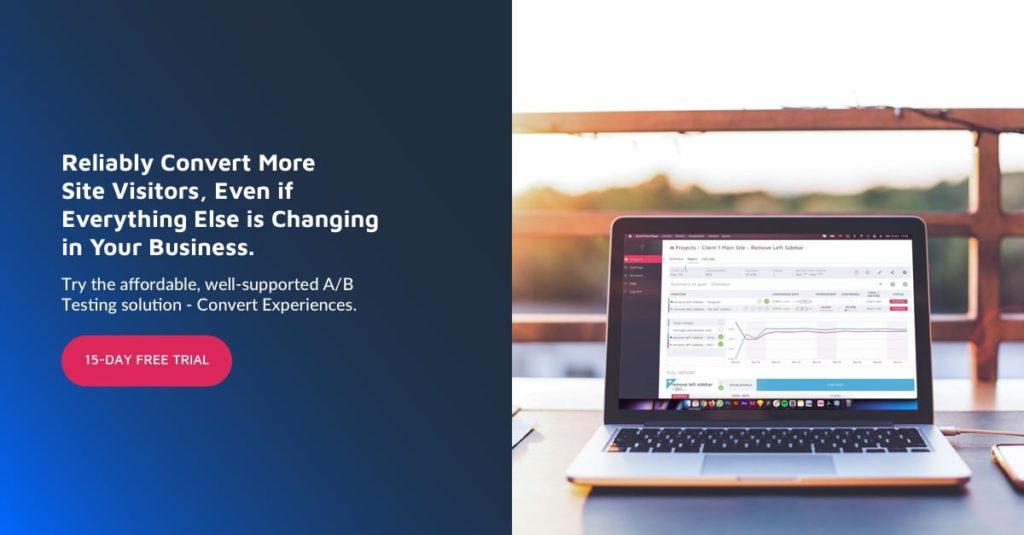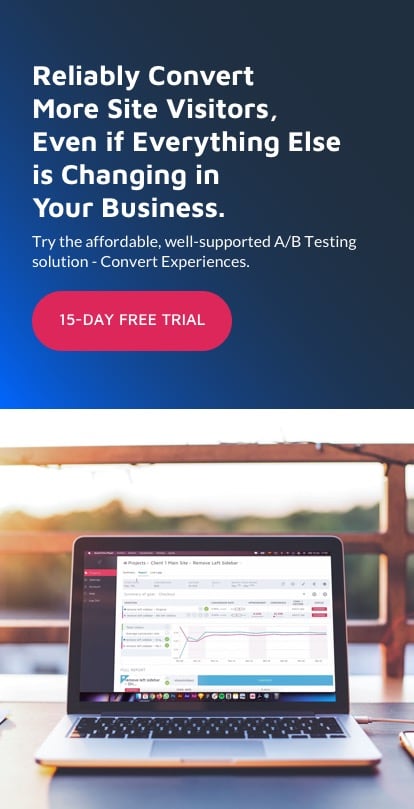Which Is More Important to Consumers: Personalization or Privacy?
If you’re involved in the world of marketing and/or product development, you’ve probably heard about this new thing called “the privacy paradox.”
Essentially, it encapsulates the concept that there’s a discrepancy between consumer attitudes and their actual behavior when it comes to how companies use their information.
According to different sources, including Econsultancy’s “Digital Trends” from this year, more and more companies are offering “personalized” customer experiences through the use of new technology.
It’s what companies think consumers are looking for, and to be frank, people are asking for it. After all, everything from our smartphones to music players can be personalized – why shouldn’t our experiences with businesses be too?
The problem is, consumers enjoy personalization, but they’re also extremely wary of companies that may (potentially) abuse their data. Without personal information, mass personalization is nearly impossible.
This leaves businesses with a conundrum: do they risk scaring customers away by asking for lots of information to personalize the experience, or do they make consumers feel safe by respecting their privacy at the expense of personalization?
Today, let’s talk about whether personalization or privacy is actually more important to consumers. Understanding where your customers’ priorities truly lie can help you make smart, forward-thinking choices when it comes to marketing your products and services.
Walking the Fine Line Between Knowing Your Customer and Knowing Too Much:
Unless you’ve had your head in the sand for the past few years, you’ve probably heard all about the Facebook privacy scandal. It’s a site that knows everything about us, from the kind of pictures we post to our rages and relationship statuses. People loved the personalization of Facebook … until things turned creepy.
Recent news has indicated that Facebook shares its user information in ways that make people feel vulnerable and exploited. The social media platform even has connections with large data companies that can read private Facebook messages.
Originally, when Facebook asked for private information such as age, gender, political preferences, etc., people assumed it was to allow them to better connect with other people on the site.
Now, users are far more hesitant. As of last January, nearly a quarter of Facebook account holders reported feeling “extremely” or “very” concerned about the volume of personal information that the company collects and stores.
After the scandal broke out, many people took a second look at their privacy settings on the site. Many altered who could see what, and some even blocked other users or completely reset their social media account.

The bottom line is Facebook made a huge tactical error when it comes to handling user data and privacy. In an effort to make more money and connect with large data companies, Facebook jeopardized the safety and comfort of its loyal tribe.
While no one is attributing mal-intentions to your business, the Facebook debacle shows that it really is very easy to end up abusing the trust of customers and users.
When trying to personalize your website or products, ask yourself,
“Why do I need this information? And why will users think I need this information?”
If you’re going to make things more individualized for each user, ensure that they understand you are doing so with the best of intentions.

Convert understands that it is really easy to go from “personalization” to “yikes, that is creepy!”.
This is why the personalizations it runs on its own website using Deploy actually informs visitors of the “Why” behind their individualized experiences.
Do Customers Want as Much Personalization as We Think They Do?
It seems like everyone is talking about “personalization” as if it’s the best thing since sliced bread. In fact, many companies are told that if they don’t work on personalizing to a higher extent, they may begin to lose customers. Whether you’re trying to sell an e-book or market a new tech product, it’s all about reaching consumers on an individual scale.
However, some studies have indicated that personalization isn’t as important to consumers as many experts think it is. Take a look at this graph produced by ConsumerThink.com detailing a comprehensive examination of what people think of the use of personal data.

Roughly 65 percent of Americans are concerned about the internet eroding personal privacy. A whopping 78 percent of U.S. citizens think that a brand should not use their personal data to market to them, and only half of the consumers would share transaction data to get more personalized service.
People like feeling special and catered to. But what we’re learning is that they only want that experience if it doesn’t come at the expense of their personal data.
81 percent of consumers may want brands to understand them better, but they also want them to know when and when not to approach them.
Sometimes, companies reach out with the intention of personalizing a message or advertisement, but they end up doing too much of a good thing. Here are some “creepy” techniques that most consumers don’t like:
- Aggressively engaging with customers.
- Unwarranted text messages about personal information.
- Text messages that pop up based on your location.
- Social media ads that are triggered by things they’ve searched online.
- Catalogs or magazines that show up in their mailbox based on internet history.
- Advertisements that are closely tied to their social media posts or announcements.
- Targeted content based on sensitive subjects.
The key to personalizing without overstepping any boundaries is understanding what your users want in a comfortable, non-intrusive way.
Build a language of loyalty with your customers so they know why you ask for certain information, as well as how you respect their privacy. Personalization is important, but customers find security and professionalism more valuable in many cases.
As a golden rule, if the consumer didn’t willingly provide the information, do not use it for personalization.
Many People Don’t Trust Brands to Use Their Information Correctly
As we showed with the Facebook example, people simply don’t trust brands anymore when it comes to respecting their privacy and acting honorably. Roughly 71 percent of consumers worry about how brands handle personal data, and nine out of 10 Americans worry about online privacy and data security.
Unfortunately, this distrust in brands extends beyond how they use personal data. At the core of the problem lies a central distrust on the consumers’ part.
They no longer believe that companies have their best interest at heart, and that has wedged a large divide between the customer experience and information gathering.
If personalization strategies come at the expense of consumer trust, then what’s the point? How will that build loyalty or encourage people to feel comfortable? Why will people recommend your brand over another that requires less information from them to provide a similar experience?
To help you out in the process of gaining conversions, here are some of the top tips that will help you strike a balance between personalizing and respecting your user’s privacy:
- Ask for the information in an upfront way and explain why you need it AND what you will do with it.
- Provide proof that the information will be stored carefully and securely – use trust badges on your website.
- Allow people to opt out of answering questions and strictly control their own privacy.
- Never make assumptions about what kind of information people are okay with providing.
- Tell people what they will get in exchange for providing information – better products, an improved experience, etc. This exchange needs to tip in favor of the pay-off users will experience. As with everything in life, give more than you’re taking.
To wrap things up, this is what Dennis van der Heijden, the CEO of Convert.com has to say about personalizations, data privacy and the future.
It certainly is a sorry state of affairs that personal information is the asset that prospective customers feel like they have to guard against vendors and providers who are supposed to make their life easy with their solutions.
The basic discrepancy is staggering!
Look at personalization as first and foremost a tactic to make users feel understood and to remove friction from their path of engaging with your brand and products.
This will draw a line in the sand and allow businesses to think beyond Conversion Rate Optimization (CRO) to Customer Experience Optimization (CXO)
Written By
Manish Dudharejia


